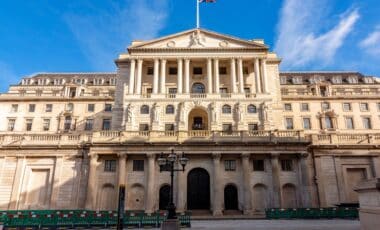The UK government has unveiled plans to tighten its grip on benefit fraud by significantly expanding the DWP’s powers to monitor bank accounts. Under the proposed measures, the department would have broader access to financial information to identify potential fraud, potentially recovering millions in overpayments. While officials argue that the initiative is vital to safeguarding public funds, critics, including major banking representatives, have raised concerns about the impact on consumer rights and privacy.
These changes form part of a larger strategy to combat fraud and errors in the welfare system, which cost taxpayers £7.4 billion last year. With a phased rollout planned over the next several years, the government is testing the new system with a select number of banks before implementing it nationwide by 2029.
How the New Checks Will Work
The DWP’s updated approach aims to improve the detection of fraud by monitoring specific bank account activities. Initially, the focus will be on accounts showing consistent overseas transactions or holding more than £16,000, the savings threshold for Universal Credit eligibility.
To streamline debt recovery, the department plans to introduce direct deduction orders, allowing it to reclaim funds from bank accounts without a court order. Work and Pensions Secretary Liz Kendall has defended these measures, citing their importance in reducing the burden on the courts while ensuring fairness.
Under the new legislation:
- The DWP would review three months of bank statements before making deductions.
- Reviews would ensure that deductions do not cause hardship for essential living expenses.
- Banks could charge administrative fees to claimants when processing deductions.
These safeguards, according to the government, aim to strike a balance between efficient fraud prevention and protecting vulnerable individuals.
Concerns Over Privacy and Consumer Protections
Despite the government’s assurances, the proposed changes have sparked criticism from banking industry representatives. UK Finance, which represents British banks, has expressed concerns about potential conflicts with existing consumer protection laws, such as the Financial Conduct Authority’s (FCA) Consumer Duty. This regulation requires banks to prioritise the needs of vulnerable customers.
Daniel Cichocki, a director at UK Finance, warned that the measures could create risks for financially vulnerable individuals:
“The proposals need further examination to ensure they don’t create risks for vulnerable customers or conflict with existing regulatory and legal obligations.”
Additionally, critics have questioned the scope of the government’s powers. While the DWP currently requires suspicion of fraud to access bank details, the new rules would enable broader information requests, potentially infringing on privacy rights.
A Costly Problem in the Welfare System
The urgency of these reforms stems from the scale of overpayments in the welfare system. Fraud and errors led to £7.4 billion in overpaid benefits last year, equivalent to 2.8% of total welfare spending.
- Fraudulent claims accounted for the majority of these overpayments.
- Unintentional errors by claimants resulted in an additional £1.6 billion in overpayments.
- Mistakes by the DWP itself contributed another £0.8 billion.
To address these issues, the department estimates that the expanded system could save taxpayers approximately £500 million annually once fully operational.
What’s Next for Claimants and Banks?
The government plans to roll out the new system gradually, starting with a limited number of banks and building societies. Full implementation is expected by 2029, giving stakeholders time to adapt to the changes. However, with significant pushback from the banking sector and consumer advocates, further adjustments to the plan may be necessary.
For claimants, the new measures could introduce additional scrutiny, particularly for those with savings exceeding eligibility thresholds or irregular account activity. While the DWP has committed to ensuring fairness through safeguards, the potential for administrative fees and direct deductions raises concerns about the financial impact on vulnerable households.










I do not agree with the government new stratagy on looking at peoples bank accounts. They already have a right to see account details when appying for benefits/ including rates etc . You used to be able to have savings of £6000 if employed or £10000 if of retirement age now you can only have this amount incapital total no matter what bills you have. People who own their homes have bills for maintainance including sometimes bills for shared access payments . Recently my electric bed cost £509.48 for parts , repair,& labour costs, matresses for my bed cost over £1000. As for council tax I submit my bank statements when requested then the office suggest they don’t have details. Many disabled and elderly find this process difficult. I cancelled my council tax rebate last September2024 due to a large cash payment from insurance for a serious health diagnosis , they are still asking for bank statements from the council to date . The system is ludicrous and costly when it comes to change of circumstances, while those who really want to cheat know how to do it and get away with it. Others just pay in full because they don’t want their privacy invaded. Many low income families think they are not entitled because they work or have small nest egg for emergencies. Many pensioners have worked since 14 or 15 years old to over 65 to get their pensions & homes . Most have also raised a family like myself while working. Everyone has to pay the same bills within their means.But some of us also have to pay for care etc.